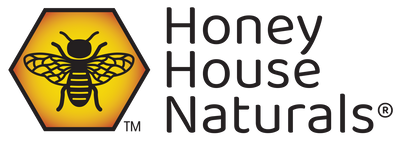Abeja social
Sé inteligente y sociable con estos datos sobre las abejas

¿Sabías que los dientes de león son una de las primeras formas de alimento disponibles para las 🐝abejas🐝 en primavera?
El polen de los dientes de león proporciona proteínas a las abejas bebés, llamadas larvas, y néctar para que las abejas adultas lo conviertan en 🍯miel🍯.
Por el bien de las 🐝abejas🐝, trate de resistir la tentación de cortar el césped.
¡PIDE UN DESEO! A niños y adultos les encanta "pedir un deseo" soplando semillas de diente de león en el aire primaveral. ¿Has pensado en hacer que los deseos duren más? ¡Recoge las semillas y colócalas en un frasco de deseos para pedir deseos todo el año, alegrarle el día a alguien y hacerlo feliz!
Fuentes: https://rentmasonbees.com/los-dientes-de-leon-alimentan-a-las-abejas /#:~:text=En%20los%20principios%20de%20la%20primavera%2C%20los%20dientes%20de%20leon,proporcionando%20n%20nectar%20esencial%20a%20las%20abejas.

¿Sabías que los egipcios criaban abejas hace más de 4000 años? Hay representaciones en las paredes del Templo del Sol egipcio de Nyuserre Ini que demuestran que sabían soplar humo en la colmena para dominar a las abejas mientras recolectaban la miel.
Fuentes: https://www.sleepybeeworx.com/beehive/
Miel
Fuentes: https://www.dermatologytimes.com/view/the-role-of-beeswax-in-supporting-the-skin-barrier , https://www.aleavia.com/blogs/news/beeswax-for-skin , https://heavenlyhoneycompany.com/what-is-beeswax/

Las abejas se sienten atraídas por los colores brillantes y las 🌷flores🌷 de aroma dulce. Así que alegra tu jardín o patio con un toque de color para ellas.
También les atraen algunas hierbas, como la lavanda, el romero y la menta de jardín.
Fuentes: https://www.honeyflow.com/blogs/beekeeping-basics/what-do-bees-eat https://www.buddhabeeapiary.com/blog/what-flowers-do-honeybees-like

La miel tiene poderes antibacterianos y antiinflamatorios increíbles, lista para curar heridas y calmar la irritación de garganta. ¿Necesitas un estimulante? ¡Es tu dulce y azucarado impulso de energía! Además, es la mejor amiga del intestino, ayudando a las bacterias beneficiosas a promover un festín en tu sistema digestivo.
fuente: MayoClinic.org
La miel es un líquido dulce que las abejas elaboran a partir del néctar de las plantas con flores. Existen alrededor de 320 variedades de miel, que varían en color, olor y sabor.
La miel contiene principalmente azúcar, además de una mezcla de aminoácidos, vitaminas, minerales, hierro, zinc y antioxidantes. Además de su uso como edulcorante natural, se utiliza como agente antiinflamatorio, antioxidante y antibacteriano. Es común usar la miel por vía oral para tratar la tos y por vía tópica para tratar quemaduras y promover la cicatrización de heridas.
Lo que dice la investigación
Las investigaciones sobre la miel para afecciones específicas incluyen:
Enfermedad cardiovascular . Los antioxidantes presentes en la miel podrían estar asociados con un menor riesgo de enfermedades cardíacas.
Tos . Estudios sugieren que la miel de eucalipto, la miel de cítricos y la miel de labiata pueden actuar como un supresor fiable de la tos en algunas personas con infecciones de las vías respiratorias superiores y tos nocturna aguda.
Enfermedad gastrointestinal . La evidencia sugiere que la miel podría ayudar a aliviar afecciones gastrointestinales como la diarrea asociada con la gastroenteritis. La miel también podría ser eficaz como parte de la terapia de rehidratación oral.
Enfermedad neurológica. Estudios sugieren que la miel podría ofrecer beneficios antidepresivos, anticonvulsivos y ansiolíticos. Algunos estudios han demostrado que la miel ayuda a prevenir trastornos de la memoria.
Cuidado de heridas . Se ha demostrado que el uso tópico de miel de grado médico promueve la cicatrización de heridas, especialmente en quemaduras.

¿Qué es la cera de abejas?
Básicamente, la cera de abejas es una cera que proviene de las abejas. Es una cera natural producida por las abejas obreras para construir sus colmenas y almacenar miel. Está compuesta de ésteres de ácidos grasos y diversos alcoholes de cadena larga. La cera de abejas es asombrosa y ha sido apreciada desde la antigüedad, con múltiples usos.
https://www.healthline.com/health/beeswax-uses
https://www.healthline.com/health/beeswax-uses,
https://heavenlyhoneycompany.com/que-es-la-cera-de-abejas

¿Es buena la cera de abejas para las heridas?
¿Tienes una molestia? Se ha demostrado que la cera de abejas tiene propiedades antimicrobianas y antioxidantes que pueden ayudar a prevenir infecciones y tratar quemaduras, raspaduras, cortes menores y heridas.
Tiene propiedades antiinflamatorias y, como medicina, se ha estudiado la cera de abejas para aliviar el dolor y la inflamación y se ha descubierto que tiene efectos antihinchazones leves, lo que ayuda a calmar las heridas.
https://www.healthline.com/health/beeswax-uses
https://draxe.com/nutricion/ceradeabejas/


¿Mito o realidad? Comer miel local puede curar las alergias estacionales: «Es una respuesta compleja», afirman los médicos.
El origen de la miel es importante. Busca mercados agrícolas locales que puedan rastrear el origen del producto o encuentra apicultores en tu zona a quienes puedas comprar miel directamente.
“En el peor de los casos, no sirve para las alergias, pero uno ha disfrutado de una deliciosa miel local”, dice Cote. “No creo que tenga ningún inconveniente”.

